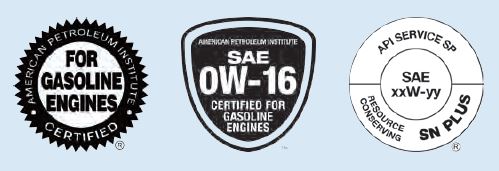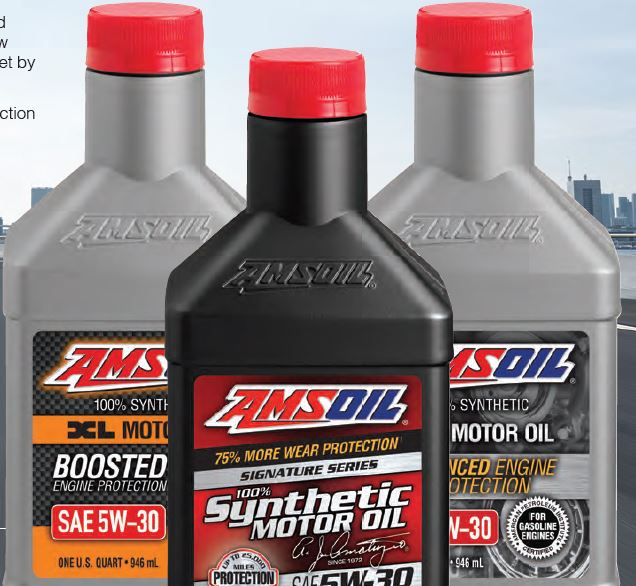NEW TECHNOLOGIES PROMPT NEW INDUSTRY STANDARDS
ILSAC GF-6 and API SP specifications coming May 1. AMSOIL is already ahead of the game.
Original equipment manufacturers (OEMs) are under pressure to improve fuel economy and reduce emissions. As a result, most new engines today use some combination of turbochargers, direct-fuel injection and variable valve timing to deliver better fuel economy and increase horsepower.
The trend of lighter engine oils to achieve these goals continues with 0W-16 viscosities emerging in the market and 0W-12 and 0W-8 expected to follow. The industry has responded to these ultra-light viscosities with two new oil specifications: ILSAC GF-6 and API SP.
We Are Already There
Our claims about using advanced technology aren’t just talk, and this specification update proves it. AMSOIL synthetic motor oils already meet or exceed the new industry standards and require no change in formulation. This is not the first time we’ve been in this position. While the competition works on making major formulation adjustments, we just have to update our labels. The new specifications are not allowed to be displayed on labels until May 1, 2020. Expect to see updated AMSOIL labels then.
The Big Split
The International Lubricant Standardization and Approval Committee (ILSAC) recently set a new precedent in the passenger-car motor oil market (PCMO) by splitting its specification into two parts:
GF-6A – backward compatible, provides protection for a variety of older and newer engines
GF-6B – not backward compatible, for use in select new vehicles
Both versions focus on wear protection, prevention of lowspeed pre-ignition (LSPI) and improved engine cleanliness. However, GF-6B features a more stringent fuel economy test. Engine oils can easily be identified as ILSAC GF-6A or 6B by the API emblem on the front label of the packaging. A shield will represent the GF-6B specification, while the traditional starburst will indicate a GF-6A product. Both ILSAC specifications meet the industry-standard API SP specification which is most commonly found in owners’ manuals.
To learn more, visit amsoil.com/lspi.







